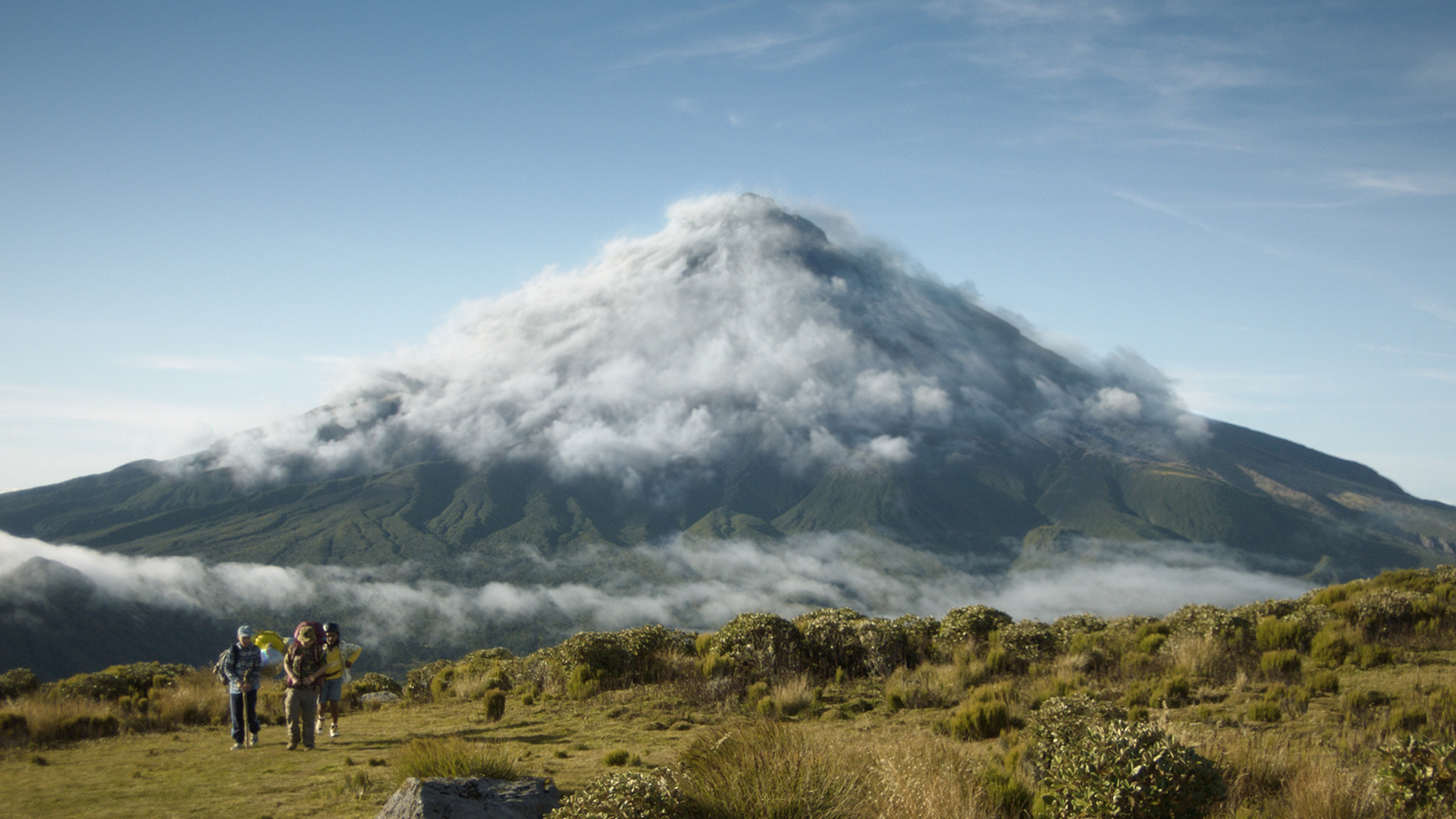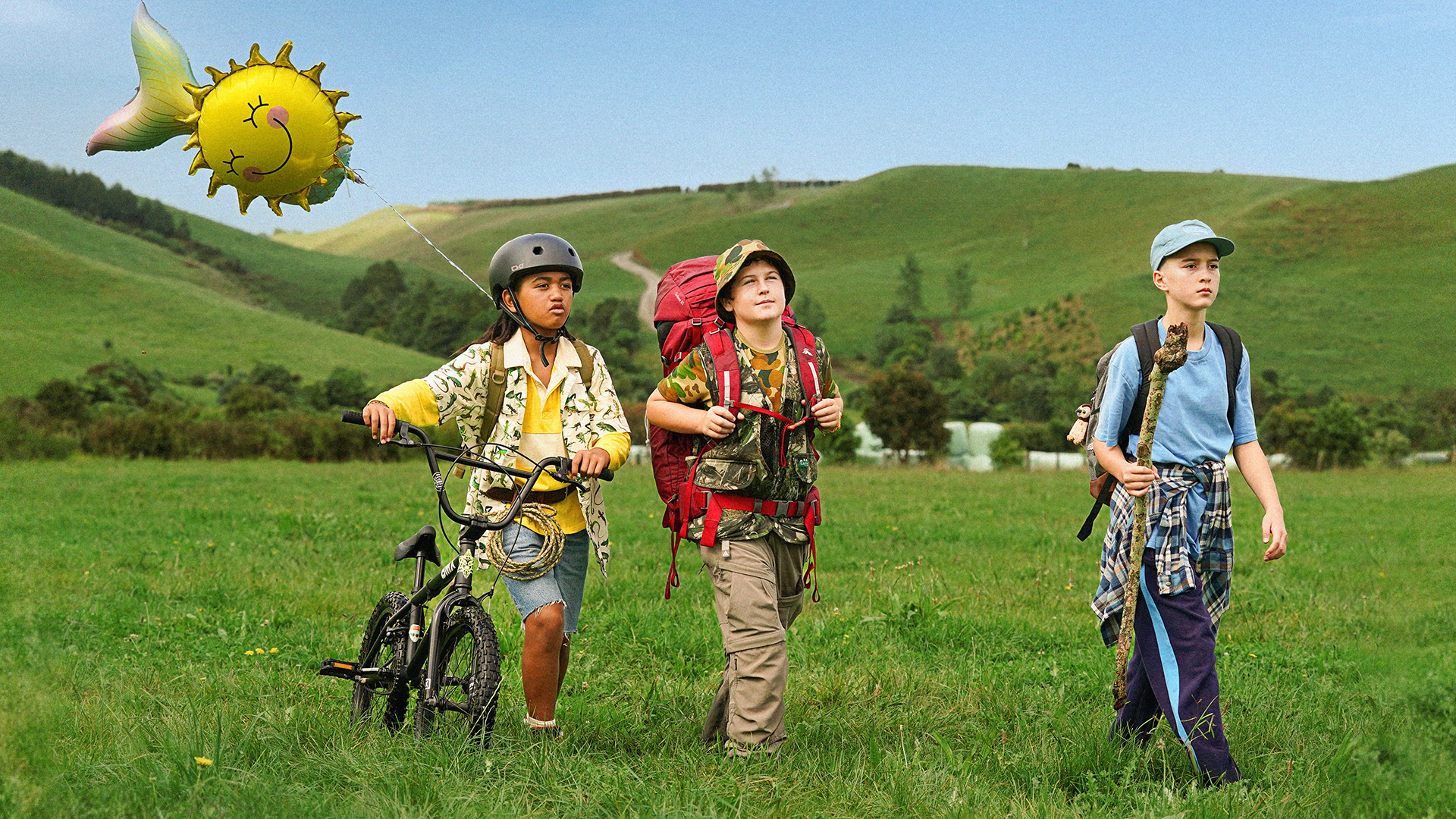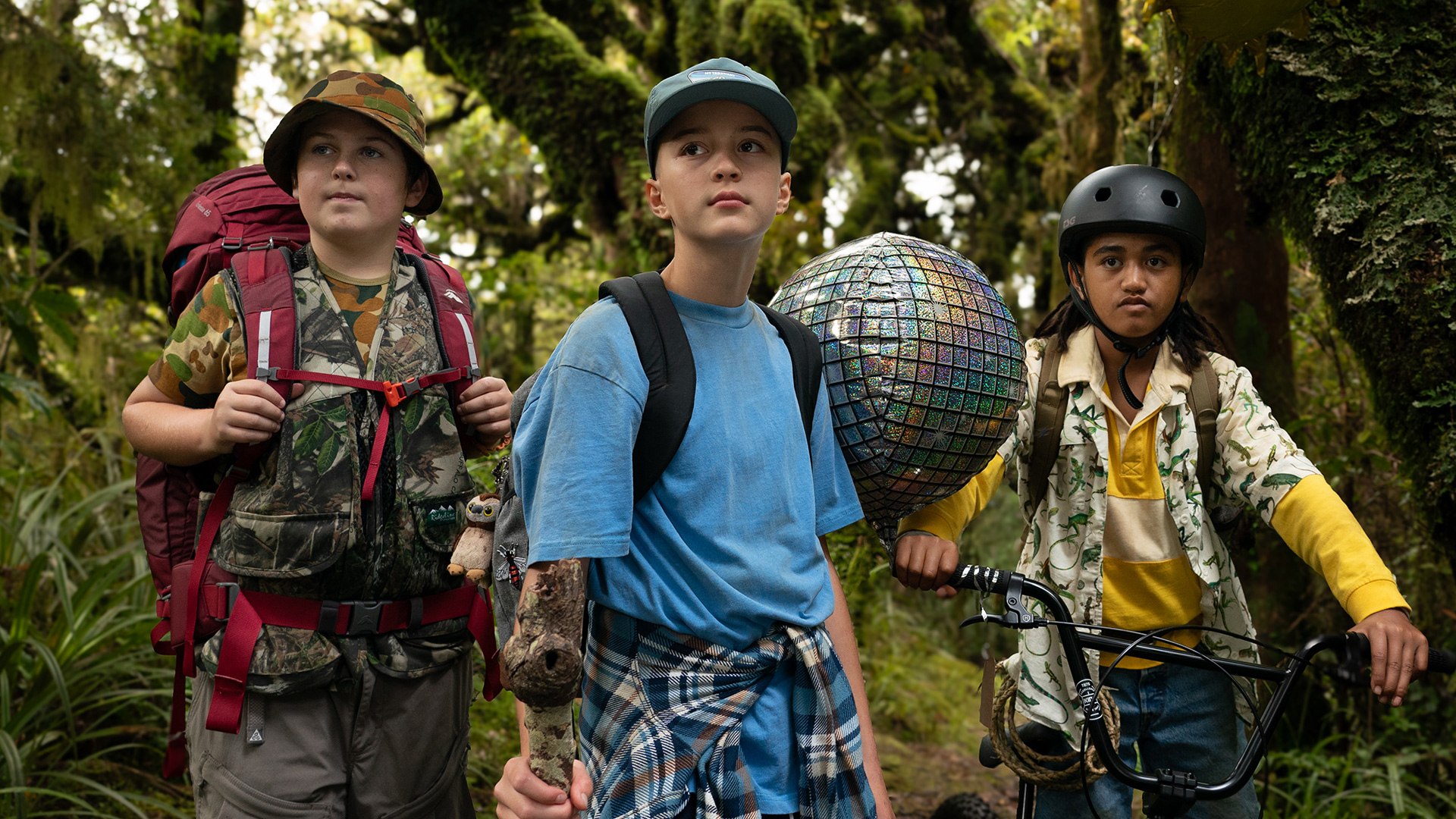The Mountain is an incredibly rare kind of kids film
Rachel House, making her feature directorial debut, has crafted a distinctly New Zealand film centred on kids that young audiences can latch onto.

New Zealand screen legend Rachel House makes her directorial feature debut with The Mountain. Liam Maguren expresses why he feels like it’s an incredibly rare kind of film.
Whenever there’s a film from Aotearoa that centres on kids, they tend to not be appropriate for kids. Taika Waititi’s Boy dabbled in drug use and profane language, Niki Caro’s Whale Rider dealt in the kind of drama targeted towards adults, and Daniel Borgman’s The Weight of Elephants hands out some straight-up depressing subject matter.
You’d also struggle to count all the family-friendly Kiwi films released over the past couple of decades. Even if you count Footrot Flats (which might be generous but I won’t judge), you’d still struggle to use all your fingers.
It’s partly why The Mountain feels so incredibly rare. Rachel House, making her feature directorial debut, has crafted a distinctly New Zealand film centred on kids that young audiences can latch onto while also telling a story with enough substance to affect anyone of any age.
Working from a script originating from Tom Furniss and then co-written by House, the story follows young Sam (Elizabeth Atkinson) and her quest to connect with Taranaki Maunga. Her hope: to ask the mighty mountain to heal her from the cancer residing in her body. Before she even steps foot on grass, she runs into Mallory (Reuben Francis), who’s still reeling from the loss of his late mother. Right when he chooses to tag along, so does Bronco (Terrence Daniel), a fellow new-kid-on-the-block who feels neglected by his father but holds a strong link to his Māori culture—the kind Sam longs for.
So far, pretty heavy on the grief, but House’s heartfelt handling of the themes and her three young leads alleviates any murky sense of doom-n-gloom. The joy of friendship and adventure energises the film with Atkinson, Francis, and Daniel selling their young camaraderie with some very good child performances and a script that wisely doesn’t ask too much of them dramatically.

Bronco’s destined to be a favourite, a kid brimming with self-confidence and independence who’s wise enough to understand the environmental impact of plastic waste but too naïve to think that maybe carrying his BMX on a bush track is a bad idea. Mallory’s the opposite, a shy kid eager to make friends but is more capable at making sensible decisions like packing properly for a hike. And then there’s Sam, a girl so doggedly determined in her mission that it’s both endearing and comical when she goes too far to look badass (like asking a fellow child for a gun).
And then there’s the film’s biggest star, Taranaki, who gets top billing in the cast. More than just a reflection of the mountain’s legal standing as a living entity, it’s one of the many strands of Māori thinking that elevates the film. An then there’s the cinematic value of having such a grand ancestor lead a picture; DOP Matt Henley makes sure to deliver a tonne of knockout shots that capture Taranaki’s majesty, which makes The Mountain’s big-screen release feel hugely warranted.
If there’s anything holding this adventure back, it’s the adventure itself. While The Mountain gets by on seeing these three likeable leads bonding over a common goal, it doesn’t make the most of its kids-on-the-loose setup. Such films were ripe in the ‘80s and ‘90s—from ET to Home Alone, The Goonies to BMX Bandits—where unsupervised kids went on a quest of a lifetime. Those films relied on proper danger, from deadly boobytraps to gun-wielding thieves, to give the journey stakes and thrills. There are plenty of risks when going bush in Aotearoa, as Waititi’s Hunt for the Wilderpeople showed, but aside from a dip in the river, The Mountain never engages with these dangers, leaving a lot of potential on the table.

It’s an odd absence for a film that otherwise, and valiantly, doesn’t talk down to kids. There are some neat observations about the reality of hospital life mined for comedic gold by a superbly monotoned Sukena Shah as Sam’s ward pal Peachy, often paired with a reliable Fern Sutherland as Sam’s constantly worried mother. Byron Coll delivers a quietly admirable performance as Mallory’s distant dad, who’s trying (poorly) to hide his grief from his son. And Troy Kingi as Bronco’s dad walks a fine line between aloof and affectionate (he’s also the film’s music man, taking this funk-fuelled soundtrack all the way to Zygertron).
More could have been done to resolve these father-son issues, but the ending pulls focus where it’s most needed—on Sam. A lesser family film would cave to convention, probably ending on the magical mountain growing a face, granting each of the characters a wish, and ending on a musical number by Smashmouth. But The Mountain stays grounded and goes deeper to find Sam’s true desires, which are thoughtfully drawn out through her newfound friendships and the properly powerful presence of Taranaki as opposed to some wishy-washy climax that solves everything.
Despite its limitations, The Mountain’s lovely and lightly thought-provoking endnote cements it as both a rare kind of kids film and a rare breed of New Zealand cinema worth remembering.
























